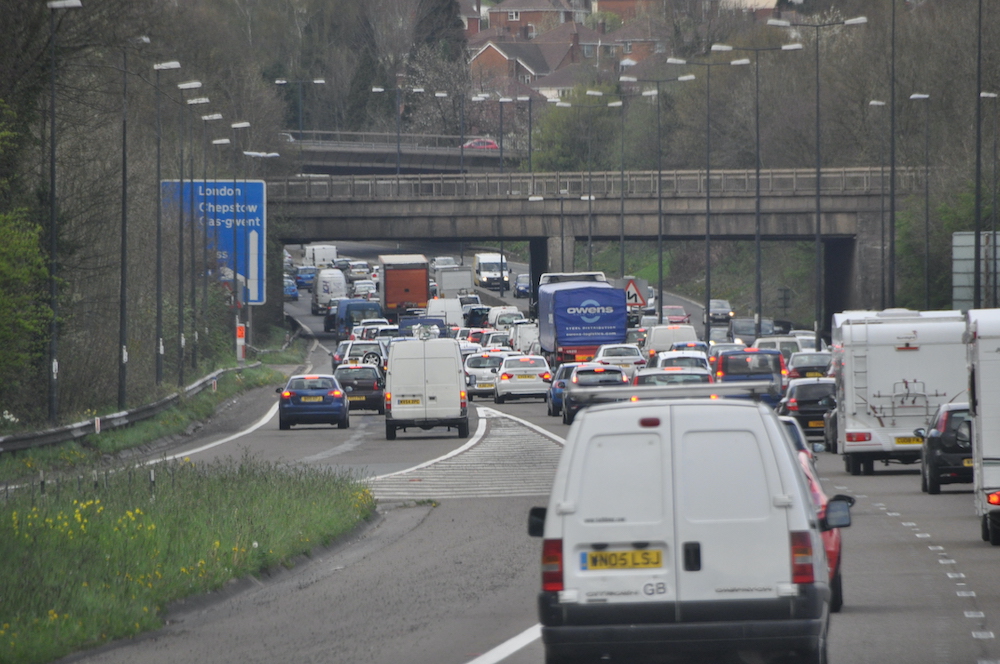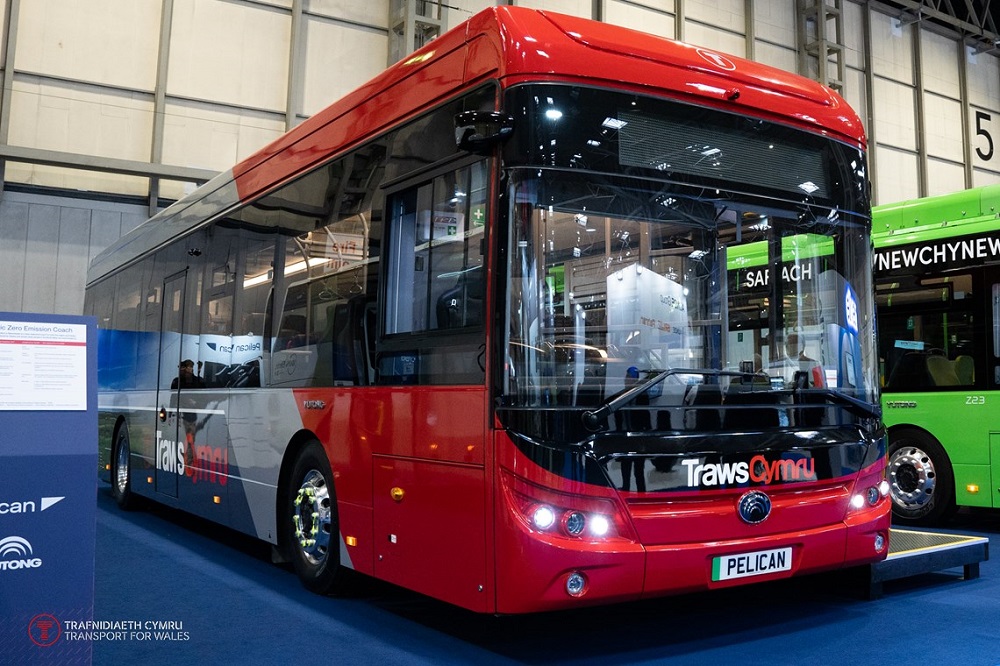Who pays for sustainable transport?

Professor Stuart Cole, CBE. Emeritus Professor of Transport Economics and Policy, Prifysgol de Cymru / University of South Wales.
At last a government (or would be government) has realised that publishing reports on how it will clean up the environment or control climate change is fine. However, such a green revolution has to be paid for.
Sharing the funding and the risks of any eco–policy has to be the government, consumers or the economy’s business and some positive increase in wealth or employment has to result.
Boris Johnson, when interest rates were low, proposed a popular green energy plan which the Labour Party’s green revolution annual £28bn decarbonisation plan followed
As is usual prior to a general election, leading opposition leaders have an opportunity to discuss their policies with civil servants in confidence which Rachel Reeves, shadow Chancellor of the Exchequer, will have done with HM Treasury officials.
The latter, not known for being spendthrift, will have outlined the revenues and borrowing levels required for such a plan. The planned expenditure is now far less ambitious to £24bn, but over the whole five years of the next UK parliament.
‘Stagflation’
Other factors have come into play since this policy was announced in 2021. Interest rates were low therefore government borrowing was cheap. The UK was not at that time in ‘stagflation’ – where the economy is not growing (stagnant) and there is still an inflationary trend.
Discussions within the UK Labour Party reflect a change of emphasis. Lord Peter Mandelson, an architect of New Labour has suggested that ‘the £28bn plan was inappropriate’ and that ‘just announcing a massive (public sector) spend and a big policy goal does not in itself deliver economic growth’.
However public sector investment in transport infrastructure can lead to inward investment – it is always in the top four criteria considered by investors.
This dichotomy of environmental sustainability versus economic efficiency has been under discussion since the 1960’s’ To equate environmental and economic impacts the former should have a monetary valuation for two reasons:
- Noise and poor air quality are dangerous to health and should be reduced
- The absence of monetary values limits environmental factors being given the same level of importance as journey time savings.
Infrastructure
England’s National Infrastructure Committee has recommended that all transport modes should share the decarbonising investment to achieve the 2050 targets. However, this should include government.
Constructing major transport infrastructure (e.g. the M4 or HS2) may incur ‘costs’ (called consumer surplus in economic analysis) where compensation does not cover loss of amenity/the view, increased noise, visual intrusion or community severance; that cost falls on the nearby residents.
Recent transport decisions by Welsh Government have spread the cost of capital investment.
Construction costs and risks for the £1.1bn of the Core Valley Lines electrified railway have been met by the government including additional capital construction cost.
As the minister for transport, Lee Waters said recently ‘Welsh Government is locked into rail expenditure because of already sunk costs, it is difficult to pull out from that’.
The air quality and congestion benefits should be considerable if the expected modal transfer from road commuting into rail is achieved but the government is taking the eco – financial risk.
Risks
Welsh Government has taken those risks on providing ‘active travel’ trains (with cycle storage) on the Heart of Wales Line, hopeful that more visitors including cyclists, walkers and current motorists will travel by train to mid-Wales.
On the roads side however. the jury is still out. Road user groups and CBI Cymru Wales were in favour of the M4 around Newport but that £1.5bn scheme was cancelled because the finance minister (at the time Mark Drakeford) considered it too expensive a risk.
Operators said building the new M4 would reduce their costs. The opposite applied to the 50-mph speed limit on the M4 at Port Talbot increasing journey times and thus costs on a route leading to a part of Wales needing ‘levelling up.’

The capital eco–financial risk of introducing electric buses on the TrawsCymru T1 route (Carmarthen – Aberystwyth), in Newport and Cardiff (£400,000 per electric bus and £150,000 for low-emission E600 diesel buses) has been taken by the Welsh Government.
Local bus services in many parts of Wales have reduced frequency following the government’s removal of the Bus Transition Fund subsidy. Surely this is where the sharing of costs have to be considered between the public and private sectors and where the passengers may even have a financial loss through reduced access to employment.
Environmentally beneficial
Welsh Government have another possible environmentally beneficial scheme upon which it is foot-dragging.
The Swansea District Line avoids both Swansea and Neath railway stations but serves a large part of both urban areas as well as west Wales.
The scheme which involves Network Rail investing £20m (2020 prices) for signalling and a new Felindre station at M4 junction 26 would take traffic bound for Cardiff and London from the M4 and onto rail and reduce journey times helping reduce climate change effects.
One of Wales’ biggest logistics companies is in the process of deciding whether to invest in electric buses or wait until the hydrogen offer is clearer and vehicles are available. This may not be until 2030 on a widely available basis.
The comparative costs are similar in nature to bus costs with a low emission diesel truck costing £90,000 or £280,000 for electric powered vehicles.
Capital costs
In Italy and Germany government grants cover fifty per cent of electric truck capital costs.
Where freight companies operate trucks on a back-to-back basis to get the best returns from their investment, recharging periods of 12 – 18 hours are not acceptable. And of course their customers have to be considered in terms of the infrastructure they will have in place for electric trucks.
To make decisions which will affect their costs logistics and bus companies require far more data than is currently available.
In an advanced industrial economy we have to be able to move around efficiently for employment, leisure, educational, health and personal activities.
How we measure the air quality impact to determine a price is yet to be agreed. And who is to pay that price now that future ‘green’ expenditure is less than expected in the UK context (and also in Wales through the Barnet formulae) is also not clear.
Support our Nation today
For the price of a cup of coffee a month you can help us create an independent, not-for-profit, national news service for the people of Wales, by the people of Wales.






Most journeys in the UK and Wales are taken by bus. Surely a logical development would be a nationalised., well regulated, inexpensive and frequent bus service. It would get people out of their cars and onto public transport.
Germany, suffering the negative economic effects of the loss of access to cheap abundant gas, is cutting subsidies for electric vehicles, including trucks.
Low UK interest rates on their own would not have made a transition feasible, low cost abundant energy was also critical, just as in Germany.
The problem with determining a price is that the costs are incurred and felt most by those at the bottom both in terms of the “tax” and the health inequalities. Unless you have alternatives in place before you change the price you will just exacerbate the problems for the bottom half of society. ie what is happening now with the mix of metro, bus subsidies and 20mph. Rail fares are just too high to encourage a mass switch from car to rail as are bus fares £4.60 for adult return Johnstown to Wrexham, total maybe 8 miles, or £1.40 for… Read more »
This is a critical point. Can you imagine the difference a free universal public travel card would make to citizens? It would have to be funded by taxation but then UK tax levels are significantly lower than European ones, particularly on the richest. If it meant my family only needed one car I’d be more than happy to pay a little more tax.